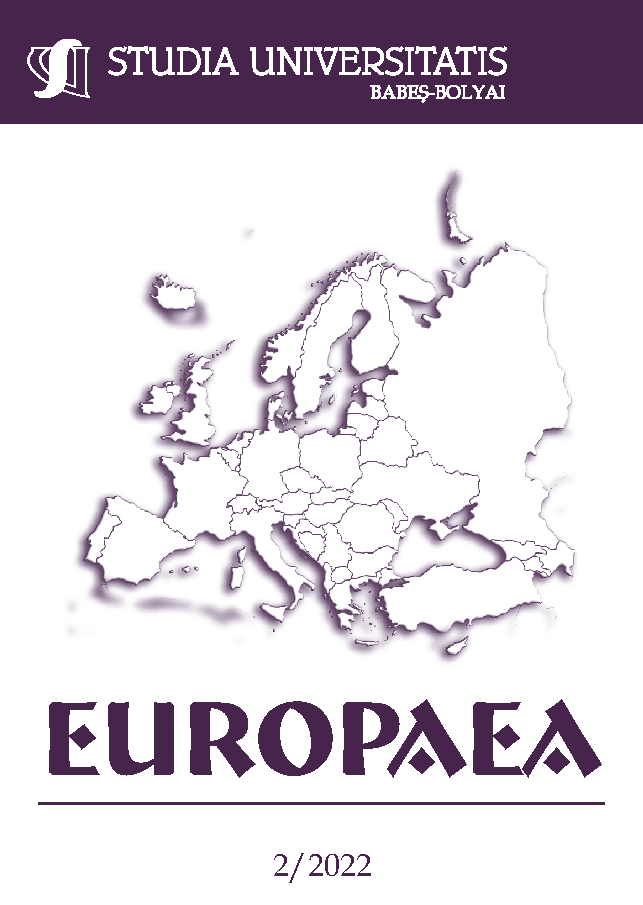SMART PARADIGMS OF MODERN INTERNATIONAL MEDIATION
DOI:
https://doi.org/10.24193/subbeuropaea.2022.2.10Keywords:
globalization of conflict, international mediation, smart mediation strategiesAbstract
Over the past few decades, due to increasing interdependence between societies, the speed of information propagation, the diminishing constraints of time and space on communication and the simultaneous involvement of an increment number of actors in the same operating theatre, we have witnessed the globalization of conflict and along with it a remarkable transformation of conflict and how it is fought. There has been a surge of interest in the recent literature on disaggregating war on defining the mechanisms driving non-conventional warfare, and therefore, the aim of this article is to underline the fact that the existing literature on international mediation has placed far too little stress on finding new approaches on managing these new challenges. The international mediation regime did not to match the rhythm and directions of conflict evolutions.
References
Armitage Richard L.; Nye Jr., Joseph S. (2007), CSIS Commission on Smart Power, Center for Strategic and International Studies.
Avruch, Kevin (2009), “Culture Theory, Culture Clash, and The Practice of Conflict Resolution” in Dennis J. D. Sandole, Sean Byrne, Ingrid Sandole-Staroste, Jessica Senehi (eds.), Handbook of Conflict Analysis and Resolution, New York: Routledge.
Bercovitch, Jacob; Foulkes, Jonathan (2012), “Cross-Cultural Effects in Conflict Management: Examining the Nature and Relationship Between Culture and International Mediation“, International Journal of Cross Cultural Management, 12(1), 25-47.
Block Jr., Ray; Siegel, David A. (2011), “Identity, Bargaining, and Thirs-Party Mediation”, International Theory, 3(3), 416-449.
Crocker, Chester; Hampson, Fen Osler; Aall, Pamela (eds.) (1999), Herding Cats: Multiparty Mediation in a Complex World, Washington D.C.: United States Institute for Peace Press.
Doran, Charles (2010), “The Two Sides of Multilateral Cooperation“, in I. William Zartman, Saadia Touval (ed.), International Cooperation: The Extents and Limits of Multilateralism, Cambridge: Cambridge University Press.
Küng, Hans (1998), A Global Ethic for Global Politics and Economics, New York: Oxford University Press.
Payne, Richard J. (2011), Global Issues. Politics, Economics, and Culture, Normal: Illinois State University.
Regan, Patrick M.; Frank, Richard W.; Aydin, Aysegul (2009), “Diplomatic Interventions and Civil War: A New Dataset”, in Journal of Peace Research, 46(1), 135-146.
Svensson, Isak; Wallensteen, Peter (2010), The Go-Between. Jan Eliasson and The Style of Mediation, Washington, D.C., United States Institute for Peace Press.
United Nations Educational, Scientific and Cultural Organization, Dialog Among Civilizations, http://www.unesco.org/dialogue/en/background.htm
United Nations, Department of Political Affairs, http://www.un.org/wcm/content/site/undpa/mediation_support
United States Agency for International Development, Conflict Management and Mitigation, http://transition.usaid.gov/our_work/cross-cutting_programs/conflict/publications/toolkits.html
Wilson III, Ernest J. (2008), “Hard Power, Soft Power, Smart Power,” in The Annals of the American Academy of Political and Social Science, 616(1), 110-124.
Zartman, I. William; Touval, Saadia (2010), International Cooperation: The Extents and Limits of Multilateralism, Cambridge: Cambridge University Press.
Downloads
Published
How to Cite
Issue
Section
License
Copyright (c) 2022 Studia Universitatis Babeș-Bolyai Europaea

This work is licensed under a Creative Commons Attribution-NonCommercial-NoDerivatives 4.0 International License.






